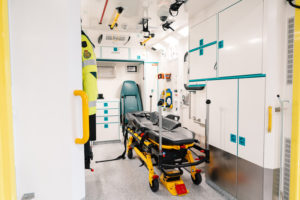Senior Lecturer in Paramedic Science
Paramedic Science BSc (Hons)
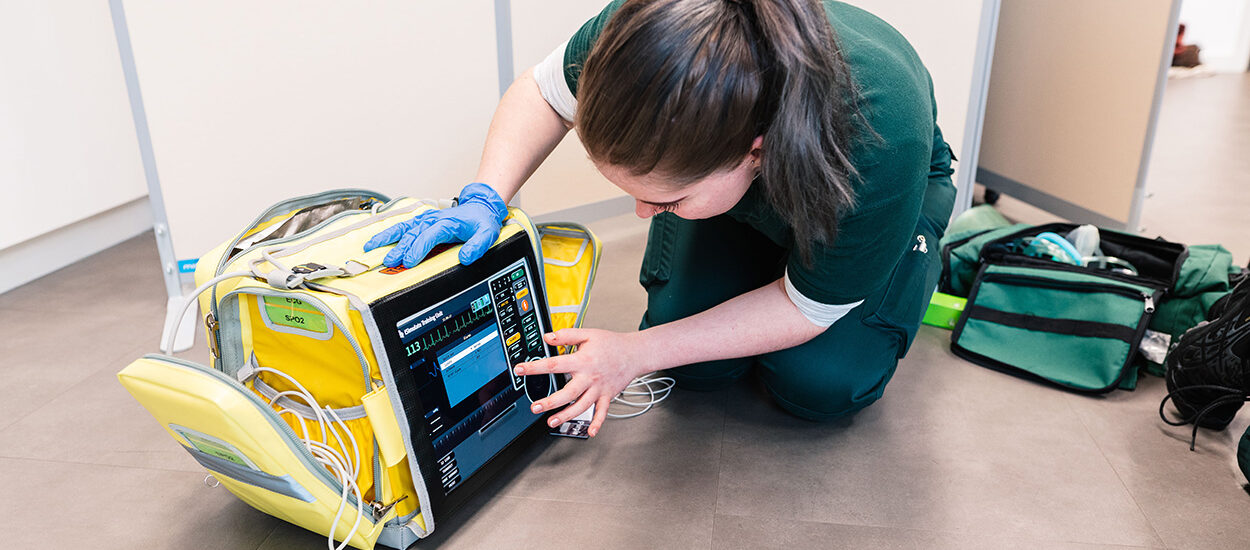
Paramedic Science BSc (Hons)
- Home
- Courses by subject
- Paramedic Science BSc (Hons)
Key Facts
-
UCAS Code
B950
-
Level
UndergraduateUG BSc (Hons)
-
Duration
3 years full-time
-
Starting
September
-
BBC at A Level
DDM at BTEC -
Full Time: £9,535
-
Waterside
Updated 09/04/2025
Updated 09/04/2025
Get in touch
For questions regarding study and admissions please contact us:
UK STUDENTS ENQUIRIES
The University of Northampton’s Paramedic Science degree programme will provide you with a wide range of academic and practical components to equip you with the required competencies to become a Paramedic registered with the Health and Care Professions Council (HCPC).
Health Professions Council (HCPC)
Successful completion of our paramedic university degree will enable you to apply for registration as a Paramedic with the Health Professions Council (HCPC), meeting the HCPC’s education requirements for registration. If you were once a registered allied health professional but took a career break and are looking for more information about financial, clinical and academic support available to return to practice, please visit the Health Education England site. This BSc hons Paramedic Science course is endorsed by the College of Paramedics
Top 5 For Student Satisfaction
Our Health Professions courses (Paramedic Science, Occupational Therapy, Health Studies and Podiatry) are ranked 5th for Student Satisfaction in the Best UK University Guardian League table for 2025.
Top 9 For Paramedic Science
The University of Northampton is ranked 9th institution for Paramedic Science in the Complete University Guide league tables for 2025.
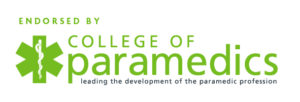
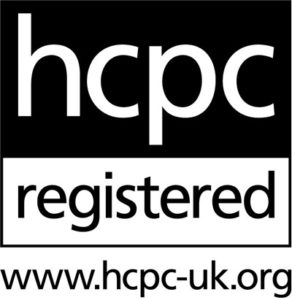
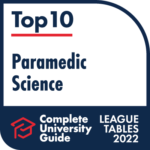
Highlights
- Robust and supportive mentoring to aid you whilst on paramedical course placements.
- Access to a clinical skills suite that has an ambulance simulator, medium fidelity manikins and a full range of paramedic patient management equipment and patient handling aids to assist you in your learning.
- A variety of placements in clinical practice in both ambulance and non-ambulance areas
- Become registered with the Health and Care Professions Council on completion of the Paramedic degree.
- You may be eligible for financial support through the NHS Learning Support Fund (NHS LSF)*
- Guaranteed paid internship with the Northampton Employment Promise.
- HP laptop and software included with this course for eligible students* (*see eligibility criteria and terms and conditions).
Entry Requirements
If you hold one of the following qualification you will be eligible to apply for the Paramedic Science degree:
- BBC at A Level including a Science subject (Biology is desirable)
- DDM at BTEC/Cambridge Technical from courses in Science or Health subject areas
- M at T Level in Biology, Science or Health related subject
- Access course (must be health or science related) you will need to achieve 15 level 3 credits at distinction and 30 level 3 credits at Merit
We welcome applications from students with a mix of A levels and BTEC/Cambridge Technical qualifications.
-
It is essential that you have a standard full UK driving license prior to starting the paramedical science course. The cost of this is your responsibility.
In addition to the requirements above, you will need to have five or more GCSEs (or equivalents) at grade C/4 or above, including English, Mathematics and a Science subject.
If you have relevant Urgent and Emergency Health Care experience and have a good knowledge of the role of the Paramedic then you are encouraged to apply for this course.
Transferable skills relevant to Paramedic practice are essential with an excellent recommendation reference.
All offers of a place on the paramedic course will be made to applicants after completion of successful interviews, and will be conditional subject to:
- a satisfactory enhanced Disclosure and Barring Service (DBS) check
- a satisfactory occupational health check, including evidence of required immunisations that includes vaccinations for exposed Prone Procedures (EPP) via the University of Northampton’s Occupational Health provider. Please refer to the department of health document used by occupational health providers.
For more information on how to make an application for the Paramedic Science degree, please visit our How to Apply page.
Placements
Placements give you a great opportunity to learn from current healthcare professionals, as well as the Police and Fire Service, who can share their learning and experience with you which will enhance your knowledge and experience.
This paramedic course offers an even split between taught university sessions and practical placements. The course will be studied over 45 weeks per year.
You will spend 37.5 hours on average per week in practice blocks, with your taught time being approximately 30 hours per week. You will need to complete approximately 750 hours of self-directed/private study for each year of the course.
You are placed in a county and across Leicestershire or Northamptonshire for your 3 years of study. The placements will be in wide range of healthcare settings from ambulance placement; hospital A&E, cardiac and Paediatrics placements; hospital Theatres, Maternity and Minor injury and illness.
Course Content
-
Becoming a paramedic offers the opportunity to provide critical medical care in emergencies, making a direct and positive impact on people’s lives. Explore Paramedic career is for you.
Our teaching team is made up of a Professional lead and a number of academics who are experienced Paramedics or Specialist Paramedics working in pre-hospital and hospital settings. All of our Paramedic Science degree teaching staff have significant practice experience and qualifications in a variety of Masters level qualifications, with the majority having completed post-graduate certificates in Medical Education.
Our Paramedical Science clinical skills suite, located at our Waterside Campus, has a purpose-built ambulance simulator, specialised equipment, manikins and a full range of paramedic patient management equipment and patient handling aids to assist students in their learning.
Our paramedic degree has a modular curriculum, ensuring that you are able to develop both academically and practically. This paramedic course combines practical placements with blended academic study in each term.
Placements can be in ambulance service work areas such as emergency ambulances, response cars, or in specialist roles such as paramedic practitioners. Other practice areas include experience in theatre departments/anaesthetics, A&E, maternity, minor injury/minor illness, coronary care and paediatrics.
Please note the modules shown here relate to the academic year 24/25. The modules relating to the academic year 25/26 will be available from June 2025.
-
-
Interprofessional Education (IPE)
Module code: FHS_IPE20Status: Compulsory
-
Fundamentals of Ambulance Care (20 Credits)
Module code: PSC1018Status: CompulsoryThe purpose of this module is to provide an underpinning of the key concepts of patient assessment and professional understanding and requirements in Ambulance care. The module will allow students to develop clinical assessment skills and understand the ethics and law associated with patient care.
-
Bioscience 1 for Paramedic Practice (20 Credits)
Module code: PSC1019Status: CompulsoryThe purpose of this module is to ensure students demonstrate a robust knowledge base of anatomy, physiology and pharmacology, increasing their understanding of the normal physiological processes within human bioscience systems. This strong foundational knowledge and understanding will then facilitate the linking of clinical and bioscientific presentations encountered in practice.
-
Foundations of Emergency Care (30 Credits)
Module code: PSC1020Status: CompulsoryThe purpose of this module is to understand and apply the knowledge of how to assess and manage patients with a variety of different conditions through their life span. This module will allow students to develop clinical assessment and management skills using a range of equipment and technologies.
-
Professional Studies for Paramedics (10 Credits)
Module code: PSC1021Status: CompulsoryThe purpose of this module is to enable students to develop their knowledge and understanding of professional issues related to paramedic practice. The student will view the patient from a holistic perspective, developing their knowedge in a range of important areas to ensure safe, ethical, legal and socially aware practice.
-
Paramedic Practice 1 (40 Credits)
Module code: PSC1022PStatus: CompulsoryThe purpose of this module is Professional socialisation (Communicating in a professional environment with staff and patients) and becoming familiar with basic concepts of ambulance care, developing into reflective practitioners.
-
Interprofessional Education (IPE)
-
-
Bioscience 2 for Paramedic Practice (20 Credits)
Module code: PSC2021Status: CompulsoryThe purpose of this module is to facilitate the integration of the students understanding of disease, injury processes and pharmacological interventions and enable students to develop a safe and evidence based approach to management interventions (pharmacological and non-pharmacological), based on understanding and recognition of altered physiology. The student will be able to recognise common signs and symptoms and relate these to specific disease or patterns of injury
-
Research Methods (20 Credits)
Module code: PSC2022Status: CompulsoryThe purpose of this module is to enable health and social care professionals to develop a critical understanding of research which will enable the facilitation and application of evidence-based practice.
-
Paramedic Clinical Care (30 Credits)
Module code: PSC2023Status: CompulsoryThe purpose of this module is to develop the student?s ability to assess and provide care to a range of patients. It aims to further develop the students knowledge and understanding of paramedic clinical assessment and management, in order to manage a range of common clinical presentations encountered in out-of-hospital settings whilst starting to consider different referrals and pathways.
-
Advanced Life Support and Trauma Management (10 Credits)
Module code: PSC2024Status: CompulsoryThe purpose of this module is to develop the students ability to recognise and manage patients in advanced life support (ALS) presentations or those with traumatic injuries. The student will increase their skill set in order to provide interventions to the critically unwell patient.
-
Paramedic Practice 2 (40 Credits)
Module code: PSC2025PStatus: CompulsoryThe purpose of this module is to develop understanding of assessment and management, by applying underpinning knowledge and principles gained through previous clinical experience to practice placements.
-
Bioscience 2 for Paramedic Practice (20 Credits)
-
-
Contemporary Contexts of Paramedic Practice (20 Credits)
Module code: PSC3024Status: CompulsoryThe purpose of this module is to consolidate the knowledge, skills and understanding taught in earlier modules related to communication, team working, decision making and ethico-legal perspectives. It will incorporate the additional concepts of human factors, organisational culture and leadership, which overall will enable the student to prepare for safe professional practice as a registrant. It reflects the essential need for safe, effective and caring clinical practice, which is required to form the basis of health care.
-
Emergency Care of Special Populations (20 Credits)
Module code: PSC3025Status: CompulsoryThe purpose of this module is to enable students to comprehensively manage a range of clinical presentations in the out of hospital environment considering evidence-based medicine and principles of autonomous practice.
-
Paramedic Practice 3 (40 Credits)
Module code: PSC3026PStatus: CompulsoryThe purpose of this module is continue advancing professional practice, developing independent decision making and leadership skills to prepare the student for HCPC registration as a Paramedic.
-
Evidence based Project in Paramedic Science (40 Credits)
Module code: PSC4004Status: CompulsoryThe purpose of this module is to enable the student to undertake research evidence acquisition and interpretation (using published research evidence or original data). This will allow them to explore the implications for practice (analysis and synthesis) and propose changes in practice (change management). The student will undertake an independent, critical, analytical, in-depth study of data and findings on a selected topic which must be relevant to the student's professional discipline in order to identify implications for practice
-
Contemporary Contexts of Paramedic Practice (20 Credits)
-
-
At the University of Northampton, everything we do, from funded trips to paid internships, is to give you everything you need to make a difference when you leave.
If you join our full-time Paramedic Science degree at Northampton, you will receive a laptop when your course begins*. The laptops are built to a bespoke custom specification ideal for use in the seminar room, collaborative group work or studying at home.
Whatever your ambitions, we’re here to help you to achieve them. We’ll support you to identify the skills you’re learning during your paramedical science course, find your strengths and secure practical experience so that when it comes to applying for jobs or further study you’ll feel confident in standing out from the crowd. We’ve created the Northampton Employment Promise because we are so confident that if you focus on your studies and complete one of our awards you’ll be highly employable by the time you graduate. Putting you in a great position to secure employment or continue your studies.
To check out the full list of perks, visit our Student Perks page or dedicated International Perks page.
* UK fee payers only (see Terms and Conditions for further details)
-
How will I be assessed on the Paramedic Science course?
Throughout the paramedic science degree, we use a broad range of assessments , for example: range of essays, written exams, oral exams, presentations and practical (OSCE) exams.
This is balanced through the years, so there is an even mix in each year and you must pass all the modules in the previous year to progress to the next.
Which Driving qualification do I need for the Paramedic Science course?
You are required to obtain a standard full UK driving license prior to starting the paramedic course. You will have an opportunity to complete the C1 driving theory qualification during your studies at the University of Northampton.
What is the Code of Conduct for this paramedical course?
You will be expected to conduct yourself in line with the Code of Conduct relating to student paramedics registering with the Health and Care Professions Council.
Worried about student finance?
Get all the info you need ahead of time, before you can apply for funding in Spring on our fees and funding pages.
Fees and Funding
2025/26 Tuition Fees
- UK Full Time: £9,535
Fees quoted relate to study in the Academic Year 2025/26 only and may be subject to inflationary increases in future years. UON will adjust UK fees annually in line with Government Policy.
-
- Travel costs to and from placements, and extra costs associate with placements, may be incurred throughout your studies depending on where you are based.
- It is essential that you have full UK driving license prior to starting the course. You will need to cover the cost of the driving license.
-
Students, studying nursing, midwifery and many of the allied health professions courses from September 2020, may be eligible for a payment of at least £5,000 a year which they will not need to pay back. They may be able to apply for Financial support at the university through the NHS Learning Support Fund (NHS LSF) which offers eligible students additional support while studying for their degree. This is in addition to the Student Loan from the Student Loans Company.
Financial contribution towards your travel, and expenses in relation to your practice learning opportunities, may be available to you from the NHS Learning Support Fund. Details, including eligibility criteria, can be found on the NHS website.
The information provided above is correct for the academic year 2024/25 but please check the NHS LSF website for full details, any changes and updates.
For more information about possible funding options for the paramedic science course, please visit our Fees and Funding pages.
-
Fees quoted relate to study in the Academic Year 24/25 only and may be subject to inflationary increases in future years.
- UK – Full Time: £9,250
Staff
Careers and Employability
Successful completion of our Paramedic Science degree will enable you to apply for registration as a Paramedic with the Health Professions Council (HCPC), meeting the HCPC’s education requirements for registration.
Master’s and Postgraduate Opportunities
Our Master’s courses are a great way to enhance the skills you have already learnt. Benefit from our 20% alumni discount on Master’s fees.
Successful completion of this course could lead on to one of our postgraduate programmes: MSc Public Health, MSc Advanced Clinical Practice, MSc Physiotherapy (pre-registration)
At the University of Northampton, we offer a range of short courses and continuing professional development (CPD) programmes. These will enable you to learn new skills, progress into specialisms or take on new responsibilities.
Facilities
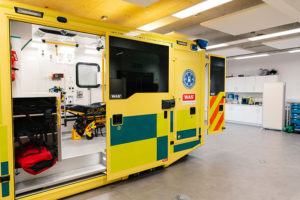
Purpose-built ambulance simulator and immersive environment to prepare students for real-life scenarios.
Clinical Skills Suite

The Learning Hub is at the heart of the campus and home to the student information desk.
Learning Hub

Purpose-built ambulance simulator and immersive environment to prepare students for real-life scenarios.
Clinical Skills Suite

The Learning Hub is at the heart of the campus and home to the student information desk.
Learning Hub

Purpose-built ambulance simulator and immersive environment to prepare students for real-life scenarios.
Clinical Skills Suite

The Learning Hub is at the heart of the campus and home to the student information desk.
Learning Hub

Purpose-built ambulance simulator and immersive environment to prepare students for real-life scenarios.
Clinical Skills Suite
Related Courses
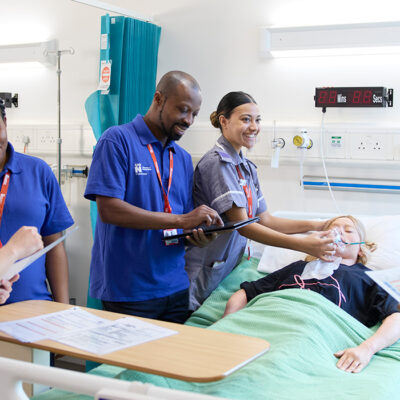
Adult Nursing BSc (Hons)
Our nursing course will give you the ability to cope with a demanding and satisfying profession...
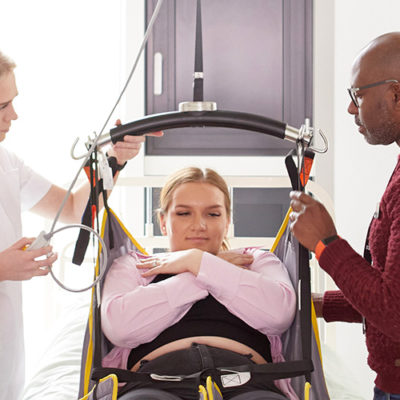
Occupational Therapy BSc (Hons)
The BSc (Hons) Occupational Therapy degree prepares you to work as a registered occupational therapist in...
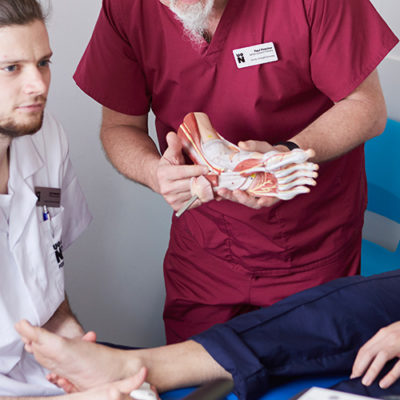
Podiatry BSc (Hons)
Our Podiatry course aims to produce graduates who are fit for practice within the NHS or...
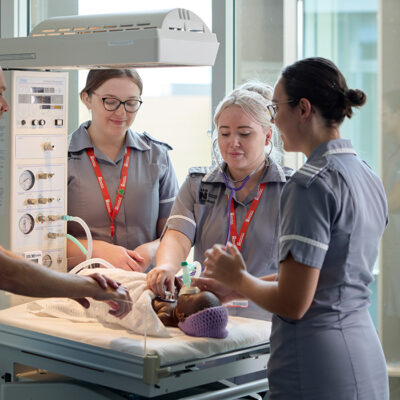
Midwifery BSc (Hons)
Midwifery is a rewarding and unique career, that will allow you to be in the privileged...
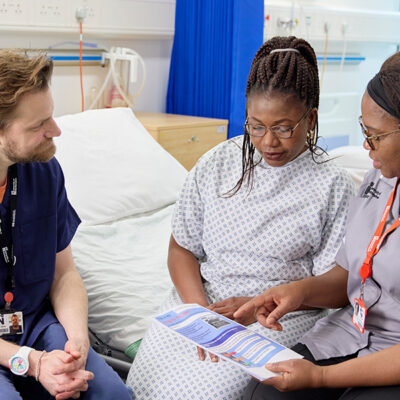
Learning Disability Nursing BSc (Hons)
Our course course will develop your understanding of the needs of people with learning disabilities to...

Mental Health Nursing BSc (Hons)
See the service from the patient’s perspective and learn how you can make positive changes through...



